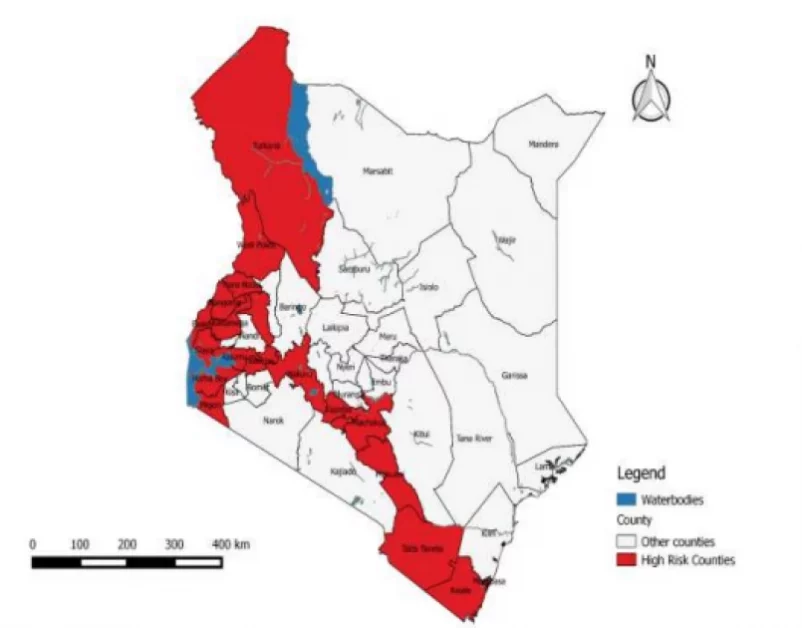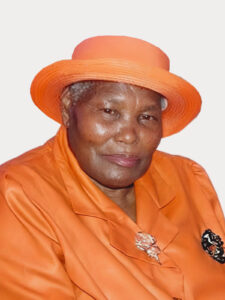Following the Ebola outbreak confirmation in Uganda on September 19th, the Health Department under the Cabinet Secretary Kagwe Mutahi urged Kenyans to be vigilant and watch out for symptoms.
The Ebola virus is considered a danger to human life with the capability of death in hours and as of yet Uganda has recorded up to 11 more Ebola cases amongst which four were identified on Friday, and three already succumbed to the malady.
Some of the signs of Ebola include high fever, vomiting, cough, chest pain, diarrhea, measles-like rash, and bleeding from body openings.
“Members of the public are advised to adhere to preventive public health measures such as handwashing, wearing masks, and social distancing. Avoid touching or burial of dead bodies that have died of unknown causes unless confirmed by health authorities, and avoid contact or eating bush meat, especially from monkeys, bats, baboons, gorillas, and chimpanzees,” added Amoth.
The Ebola virus apparently enters the body through contact with infected blood, urine, feces, semen, or other bodily fluids within an incubation period of 2-21 days.
According to Dr. Amoth, Kenya is at a higher risk of getting Ebola within the nation following the massive human traffic between Kenya and Uganda via border points of Busia and Malaba as well as the Jomo Kenyatta International Airport (JKIA), Kisumu, Eldoret, and Mombasa airports.
“Owing to these risks, Kenya needs to implement effective measures to prevent the Ebola virus outbreak from spreading into the country, including stepping up surveillance for detection and preparedness for an appropriate response,” Dr. Amoth said.
Thereby calling on a high vigilance of Citizens to ensure safety is maintained within though expressed fear for the presence of heavy Ugandan citizens at Nairobi, Kajiado, and Kakuma as possible risk factors.
The Ministry of Health through the acting Health Director General Dr. Patrick Amoth mentioned the counties that are deemed at high risk of infections to be; Busia, Nakuru, Kiambu, Nairobi, Kajiado, Machakos, Makueni, Taita taveta, Mombasa, Kwale, and Kericho.
Kenyans are reminded that in case of suspected Ebola cases to the nearest health facilities or call 719 or MoH via 0732 353 535 and 0729 471 414.
About the Author
Kwabe Victor
Contributor
Multimedia Journalist. Aspiring documentary/Investigative journalist, currently immersed in writing Political, Business and Human Interest Stories. Speak Life.
















